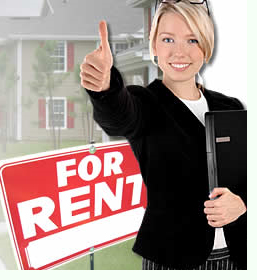How Do Landlords Choose Rental Property?
 If you’re buying your first rental property, you probably have a list of questions a mile long. How much rent should I charge? How do I know if I’m paying too much for the property? How do I make money? How do I choose tenants? How do I choose a rental property in the first place?
If you’re buying your first rental property, you probably have a list of questions a mile long. How much rent should I charge? How do I know if I’m paying too much for the property? How do I make money? How do I choose tenants? How do I choose a rental property in the first place?
This post is about that last question: How does a landlord choose a rental property? If you put that question to a hundred landlords, you’ll probably get a hundred different answers. Different properties work for different people—for different reasons! Of course one must consider price, return on investment and expenses when evaluating rental property—but smart landlords also consider their future tenants, too.
Identify your target tenants: Every business needs a thorough plan, including your rental business! Include a profile of the type of tenant you want to attract. Remember that you cannot discriminate on the basis of race, gender, religion, ethnicity, family structure, or disability—but you are certainly free to limit your tenants to the ones who can pay rent on time and who are within a certain income bracket. If you want higher-income professionals, don’t buy a multi-unit building in a shady section of town. If you want to rent to stable families or well-employed folks, concentrate on the type of unit they will want to call “home.” If you don’t care what type of tenant you have, as long as they pay the rent on time, then the type of property does not matter as much. Some people will rent anything, anywhere.
Think about what your target tenants want: Some landlords like the low-rent business—they find inexpensive properties in lower-rent areas of town, and make a nice profit on them. But purchasing a rental property in a higher crime area will not attract families looking for a safe place to raise children. They prefer safe, owner-occupied areas, because they want to live in a nice neighborhood. Location is most important to tenants, so evaluate the area’s offerings: safety, good schools, shopping, and convenience to amenities, like parks.
What type of turnover will the property have? Again, it’s a question of stability. Longer-term tenants will settle in a home. Shorter-term tenants often think of their current rental as a temporary stop on the way to the next place. You might make more money on the latter, by charging a higher rent or increasing the rent with each turnover, but the headaches that go along with high turnover are not for everyone.
How many bedrooms should you look for? Again, it depends on the type of tenant you want to attract. Want singles? Buy units with one bedroom. Want families? Look for three-bedroom homes.
Curb appeal: If you’re considering purchasing a that looks sad from the street, consider what you can do to improve it. Whether or not you take a pass depends on the price and the investment needed to make the unit attractive. Just as homebuyers are attracted to a nice-looking home, so are the best tenants. If you don’t care about what your rental property looks like, you’ll attract tenants who don’t care about where they live.

Add A Comment
You must be logged in to post a comment.